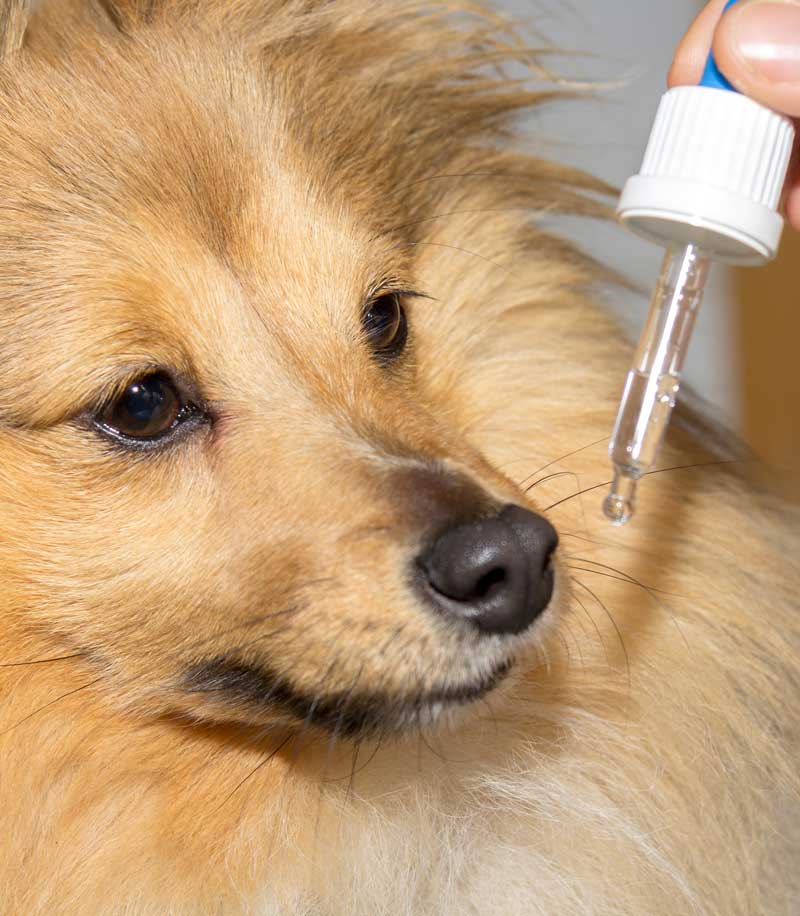Do you have to call your dog three or four times to come back into the house? Did they used to respond right away?
You might have to consider hearing aids for your dog, seriously, that’s a thing! Your dog may be suffering from hearing loss in one or both ears. If you are lucky, it is just a temporary loss of hearing due to a wax build-up. If you are not so lucky, your dog may be suffering from partial or total hearing loss. The best way to know for sure how serious it is, and if and can be treated, is to see your veterinarian at the first sign of hearing loss in your dog.
Ailment Guides:
Thyroid Problems In Dogs
Cushings Disease In Dogs
Cbd For Puppies How To Care For Your Teething Puppy
canine audio-sensory conditions
types of canine hearing loss:
Deafness in dogs can be hereditary or caused by infection, trauma, birth defects blockage of the ear canal and old age. There are a few different types of hearing loss in dogs.
Conductive:
Sounds from the outside can not be picked-up by the nerves in the inner ear
Sensorineural:
Brain sensors cannot interpret auditory data or receptors cannot transmit sounds signals from the ear to the brain.
Congenital:
They may just be born with it. Their ears may not work properly due to a genetic inheritance or birth defect.
Acquired:
Old age, trauma or infection can all have an affect on a dogs hearing.
Causes of hearing loss in dogs?
Acquired deafness in a dog could be caused by any of the following factors:
- Exposure to heavy metals such and mercury or lead
- Inflammation or swelling in the ear
- Outer, middle or inner ear infections
- Trauma to the brain or ear drum
- Blockage (from wax, hair or fluids)
- Damage due to loud noises
- Old Age (geriatric degeneration)
- Tumors in the ear
how to treat canine hearing loss:
Hearing Aids
Do they make hearing aids for Dog? Might seem like a silly question, but the answer is yes! Cochlear implants and hearing aids are become more commonly available for our canine companions. Hearing aids for dogs are not cheap or suitable for all dogs. Do some research and speak to your veterinarian about if this would be the right choice for your dog.
Blockage Removal
If a buildup of hair, wax or fluid is to blame for your dog’s hearing loss, a simple trip to the vet may be all that is need. The vet can remove the blockage and have your dog’s hearing back to normal in no time.
Infection
An ear flush or ointment may be required to help fix hearing loss caused by infection. Oral antibiotics may also be used in combination with the ear washing.
Tumors
Unfortunately surgery is pretty much the only option in this case. Removal of the tumor should clear the ear canal and resolve the issue.
Why CBD can be an effective treatment for hearing loss
CBD – or Cannabidiol – can act in support of your dog’s immune system and reduce the risk/size of tumors.
Cannabidiol (CBD) can be very beneficial for maintaining your dog’s immune system, cardiovascular system and overall vitality. CBD helps to lessen the effects of lethargy, gastrointestinal issues and reduces anxiety, aggression and stress-related disorders.
Think of CBD as a supplement that can reduce the severity and frequency of most of your dog’s symptoms of hearing loss. It can be ingested daily, or as needed, and is especially potent at increasing focus. While your dog’s hearing loss might be a symptom of age or genetics, CBD treats and tinctures can help your canine focus and remain calm in times of anxiety.
Cannabidiol is a phytocannabinoid that has been shown to have a prominent effect on numerous ailments – including epilepsy, arthritis and cancer. Remedies containing CBD achieve this by interacting with your dog’s endocannabinoid system. Almost all animals, like people, have an endocannabinoid system; this network of neurotransmitters is integral to physiological processes like memory, mood, pain, stress and appetite.
This complex biosystem is very prevalent in dogs in comparison to other species. Canines have a high concentration of CB1 & CB2 receptors in their brainstem. CB1 receptors affect the brain, lungs, vascular system and muscles, gastrointestinal function; whereas, CB2 receptors are linked to bones, skin spleen and glial cells. In combination, CB1-CB2 collaborate in influencing the overall immune system, liver, kidneys, bone marrow, pancreas and brainstem.
CBD can help your dog by producing anti-inflammatory, anti-anxiety, antipsychotic, antispasmodic and analgesic effects indirectly – that is, CBD interacts with your dog’s ECS (Endocannabinoid System) opposite to THC which directly binds to the Cannabinoid Receptors of the body. This does two things: makes the positive remedial properties more bioavailable to your dog; and lessens or negates the psychoactive effects, such as those associated with THC ingestion.
As you can see by the scope of ailments that are affected by CBD, it is clear how introducing CBD into your dog’s routine can benefit their overall health.
Ailment Guides:
Weight Loss In Dogs
Canine Blisters
Giardia In Dogs










